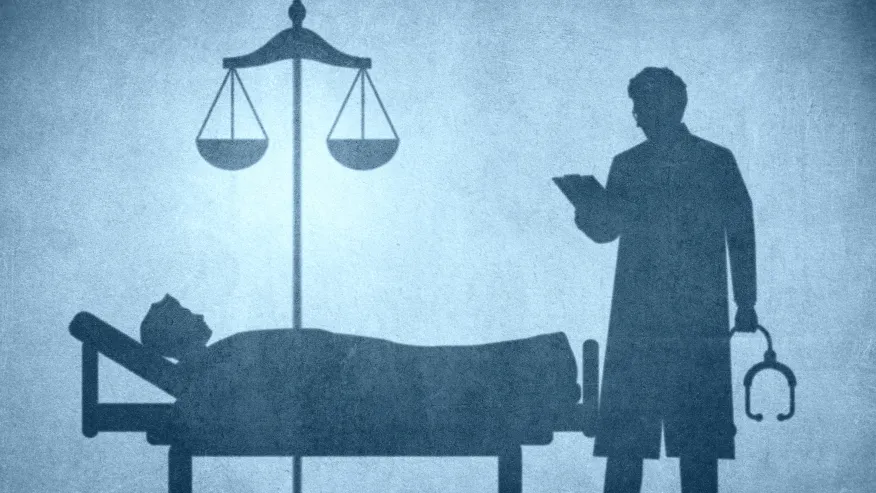ALBANY, N.Y. (NEXSTAR) — As New York State involuntary commitment grapples with delayed budget negotiations, one of the central points of contention is a proposal that would expand the state’s authority to involuntarily commit individuals with severe mental illness. Governor Kathy Hochul’s push for earlier interventions is drawing both bipartisan support and significant opposition from mental health advocates and civil liberties groups.
What Is Involuntary Commitment?
Involuntary commitment is a legal process allowing the state to hospitalize individuals with severe mental illnesses without their consent if they pose a risk to themselves or others. Currently, this measure is often invoked after a crisis has already occurred. Hochul’s proposal seeks to shift this timeline forward—allowing local authorities to intervene before violence or self-harm manifests, if a person cannot meet basic needs like food, shelter, or medical care.
Governor Hochul’s Argument: Prevention Over Reaction
Governor Hochul says the proposed expansion of involuntary commitment laws is about empowering mental health professionals with tools to intervene before tragedy strikes.
“We want to defuse a crisis before it escalates,” Hochul stated. “This is about saving lives.”
The policy has gained the backing of the New York State Office of Mental Health, law enforcement agencies, and a coalition of local leaders. They argue that without timely interventions, individuals with serious mental illness risk falling into a revolving cycle of homelessness, incarceration, and repeat hospitalization.
Dr. Ann Marie Sullivan, Commissioner of the Office of Mental Health, emphasized the stakes:
“Expanding the involuntary commitment law will save lives. It ensures that some of the most vulnerable New Yorkers get the care they desperately need.”
Involuntary Commitment vs. Voluntary Mental Health Services
Despite this push, both the State Senate and Assembly rejected the policy in their one-house budgets, calling instead for investments in discharge planning, community-based treatment, and preventive care services.
Civil rights and mental health organizations such as:
- New York Civil Liberties Union (NYCLU)
- Mental Health Association in New York State
- New York Lawyers for the Public Interest
…warn that forced treatment without appropriate follow-up care can lead to traumatic outcomes, mistrust, and ineffective treatment.
“You cannot solve systemic underfunding by giving police and hospitals more power to detain people,” said one advocate. “What we need are more inpatient beds, housing support, trained staff, and long-term community-based care.”
Public Opinion and Political Divide
A Tulchin Research poll cited by the governor revealed that 88% of NYC residents support expanding the criteria for involuntary commitment. The findings reflect growing public concern about untreated mental health conditions visible in public spaces.
Meanwhile, Republican legislators and the New York State Sheriffs’ Association have voiced strong support for Hochul’s plan. They point to recent incidents—like a cleaver attack on children in Brooklyn—as evidence of the current law’s shortcomings.
“The tools we have are simply not enough,” said Assembly Minority Leader Will Barclay. “We need to allow early intervention to keep our communities safe.”
Budget Delays Tied to Mental Health Legislation
The state budget, originally due April 1, remains in limbo, with the debate over involuntary commitment standing as one of its most divisive issues. As negotiations continue, many advocates warn that real progress on mental health care hinges on more than policy—it’s about sustainable investment.
Frequently Asked Questions –
What is involuntary psychiatric commitment?
It’s a legal process allowing someone to be hospitalized for psychiatric treatment without their consent if they are deemed a danger to themselves or others, or unable to care for basic needs.
What is Governor Hochul proposing?
She wants to expand criteria for involuntary commitment to allow intervention before violent behavior occurs, if someone shows signs of being unable to care for themselves due to mental illness.
Why are mental health advocates opposing it?
Advocates argue that involuntary treatment without proper community support and follow-up care can cause more harm than good. They call for more funding for voluntary treatment programs and systemic reforms.
What do supporters say?
Supporters—including sheriffs, some legislators, and public health officials—argue that early intervention could prevent violence, reduce homelessness, and lessen strain on hospitals and jails.
Is there public support for the proposal?
Yes. A recent poll showed 88% of NYC residents support expanding the criteria for involuntary psychiatric intervention.







